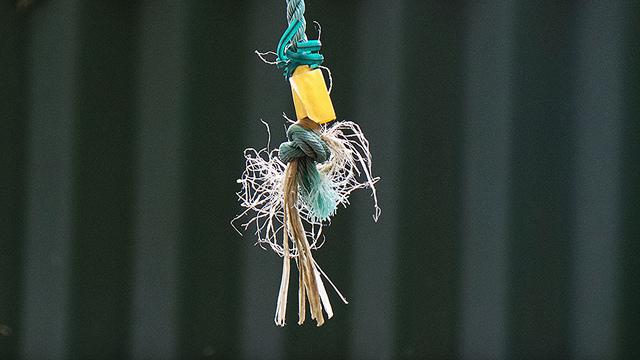CT Scan
Posted By Stephanie Huang on March 12, 2015 @ 14:30
This week’s CT Scan shines a light on Australia’s ‘white jihadi’, marriage and motherhood in the Islamic State, Boko Haram, terror trends in Southeast Asia, neo-Nazism, and the impact of terrorism research.
With the identification of Islamic State’s ‘white jihadi’ as Melbourne teenager Jake Bilardi [2] (reported this morning to have been involved in a suicide bombing [3]) and two teen brothers stopped at Sydney airport [4], the Australian government is now hosting crisis discussions [5] with Facebook, Google and YouTube this week about taking a stronger stance on removing extremist content. On Rappler, Maria Ressa explains [6] why ISIS’ social media tactics work and how governments, the private sector and communities around the world are coming together to counter them.
CCTV images [7] of three female teenagers from London leaving to join Islamic State have thrust the role of women in radical organisations into the limelight. A study [8] by the London-based Institute for Strategic Dialogue indicates that women join Islamic State for the same reasons as men, namely, adventure and a longing to address perceived injustice against Muslims. Barbara Walters on Reuters argues [9] that money also has an impact, with one study [10] finding economic insecurity the strongest predictor of female extremism.
For its part, Islamic State has released a manifesto [11] that spells out the role of women in the caliphate (which, in case you were wondering, are marriage and motherhood). See here [12] for the Quilliam Foundation’s translation and analysis of the document and here [13] for how the extremity of the content of the manifesto could be turned to assist in illustrating the pitfalls of joining ISIS.
This week Boko Haram announced it was joining forces with Islamic State. Writing in The Christian Science Monitor, Michael Holtz explains [14] that Boko Haram’s pledge of allegiance [15] indicates that the groups are ‘on the same page’, but ‘it’s too early to tell for sure if Boko Haram will fall directly under ISIS command, and to what extent they will act as an ISIS proxy’. On the flipside, it appears that ISIS is starting to ‘fray from within’ [16] due to increasing conflict between foreign and local fighters, battlefield setbacks and defections that are ‘erod(ing) its aura of invincibility’.
Turning to Southeast Asia, Sidney Jones from the Institute for Policy Analysis of Conflict (IPAC) warns [17] that returning foreign fighters could provide local terrorist organisations with ‘a real oomph’. Listen here [18] for Jones’ interview at the Lowy Institute on the ramifications of Islamic State for Indonesia. In the Philippines, IPAC’s latest report [19] also looks at the botched police operation [20] in Mindanao in January against one of the FBI’s most wanted terrorists Zulkifli bin Hir (also known as Marwan). The report debunks conceptions of Marwan as a ‘world-class terrorist’ and examines the intersection of CT and conflict resolution. Lastly, Malaysia’s proposed CT legislation the Prevention of Terrorism Act [21] will be tabled in parliament this month and includes the power to detain without trial for up to two years. The proposed laws have been criticised [22]by Malaysia’s legal community, who believe that current legislation is sufficient.
Building on last week’s discussion [23] of the contribution of other fields to CT, experts in Germany working to deradicalise jihadists have drawn insights [24] from the taming of neo-Nazis. Head of the Violence Prevention Network [25] Thomas Mücke said that the attraction of self-empowerment that those two ‘fascist ideologies’ offer is similar.
And what about the role of science in CT? Psychologist and terrorism expert John Horgan [26] argues that psychology [27] may assist in understanding terrorism and providing a strategic CT framework. In explaining why he drew a link between those two fields, Horgan said that ‘the idea that extreme behavior can often develop from mundane beginnings was the most profound thing I had ever heard.’
However, Anthony Biglan writing for the New York Times observes [28] that the increase in CT research hasn’t led to a decline in terrorism. This is because the ‘right’ kinds of studies haven’t been conducted, with only 3% of peer-reviewed terrorism articles in 2008 using empirical analysis, and almost no research evaluating CT strategies exists. Instead, Biglan recommends that we use prevention science [29] techniques that identify risk factors, develop treatments addressing those factors and test the effectiveness of those treatments.
Stephanie Huang is an intern at ASPI. Image courtesy of Flickr user Theen Moy [30].
Article printed from The Strategist: https://aspistrategist.ru
URL to article: /ct-scan-4/
URLs in this post:
[1] Image: https://aspistrategist.ru/wp-content/uploads/2015/03/11195945844_e1094337e5_z.jpg
[2] white jihadi’ as Melbourne teenager Jake Bilardi: http://www.abc.net.au/news/2015-03-09/alleged-foreign-fighter-identified-as-melbourne-teenager-jake/6290368
[3] reported this morning to have been involved in a suicide bombing: http://www.smh.com.au/world/australian-white-jihadi-teen-jake-bilardi-involved-in-islamic-state-suicide-bombing-report-20150311-141m7i.html
[4] two teen brothers stopped at Sydney airport: http://www.abc.net.au/news/2015-03-08/customs-stop-teens-en-route-to-middle-east-conflict-zones/6288718
[5] crisis discussions: http://www.news.com.au/technology/facebook/isis-fight-facebook-google-youtube-to-hold-canberra-talks-with-abbott-government/story-fnjwvn4n-1227257452984
[6] explains: http://www.rappler.com/newsbreak/in-depth/86205-social-movements-fight-isis-social-media
[7] images: http://www.nytimes.com/2015/02/25/world/from-studious-teenager-to-isis-recruiter.html?_r=0
[8] study: http://www.strategicdialogue.org/ISDJ2969_Becoming_Mulan_01.15_WEB.PDF
[9] argues: http://blogs.reuters.com/great-debate/2015/03/04/why-do-european-muslim-girls-look-to-islamic-state-for-marriage-material/
[10] study: http://muse.jhu.edu/journals/wp/summary/v060/60.4.blaydes.html
[11] manifesto: http://www.theatlantic.com/education/archive/2015/03/isis-manifesto-spells-out-role-for-women/387049/
[12] here: http://www.quilliamfoundation.org/press/quilliam-translation-and-analysis-of-islamic-state-manifesto-on-jihadist-brides/
[13] here: http://www.theguardian.com/commentisfree/2015/feb/09/isis-appeal-women-manifesto-propaganda
[14] explains: http://www.csmonitor.com/World/Africa/2015/0309/What-does-Boko-Haram-s-pledge-to-Islamic-State-really-mean-video
[15] pledge of allegiance: http://www.abc.net.au/news/2015-03-08/boko-haram-pledges-allegiance-to-islamic-state-monitoring-group/6288720
[16] fray from within’: http://www.washingtonpost.com/world/middle_east/the-islamic-state-is-fraying-from-within/2015/03/08/0003a2e0-c276-11e4-a188-8e4971d37a8d_story.html
[17] warns: http://www.theguardian.com/world/2015/mar/11/indonesian-jihadis-could-be-galvanised-return-isis-fighters-analyst
[18] here: http://www.lowyinterpreter.org/post/2014/09/24/Sidney-Jones-on-ISIS-and-Indonesia.aspx?COLLCC=3721079756&
[19] report: http://file.understandingconflict.org/file/2015/03/IPAC_17_Killing_Marwan_in_Mindanao.pdf
[20] botched police operation: http://edition.cnn.com/2015/02/05/world/philippines-marwan-dna-positive/
[21] the Prevention of Terrorism Act: http://www.straitstimes.com/news/asia/south-east-asia/story/malaysias-new-anti-terror-law-includes-detention-without-trial-elect
[22] criticised : http://www.freemalaysiatoday.com/category/nation/2015/03/03/detention-without-trial-under-new-anti-terrorism-act/
[23] discussion: https://aspistrategist.ru/ct-scan-3/
[24] drawn insights: http://www.csmonitor.com/World/Europe/2015/0226/To-fight-homegrown-jihadis-Germany-takes-lesson-from-battle-with-neo-Nazis
[25] Violence Prevention Network: http://www.violence-prevention-network.de/
[26] Psychologist and terrorism expert John Horgan: http://www.uml.edu/Research/CTSS/faculty/Horgan-John.aspx
[27] psychology: http://blogs.scientificamerican.com/cross-check/2015/03/02/can-science-solve-terrorism-qa-with-psychologist-john-horgan/
[28] observes: http://www.nytimes.com/2015/03/08/opinion/sunday/where-terrorism-research-went-wrong.html?_r=0
[29] prevention science: http://www.preventionaction.org/prevention-news/prevention-science-all-revealed/5842
[30] Theen Moy: https://www.flickr.com/photos/theenmoy/11195945844
Click here to print.
